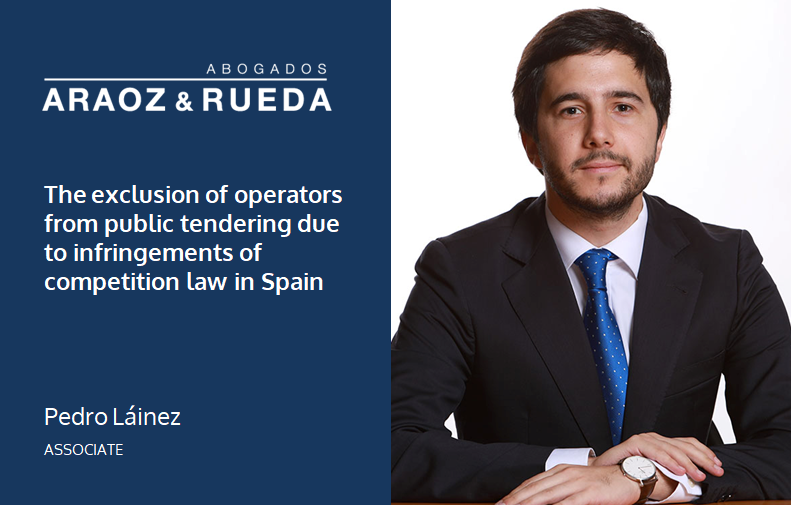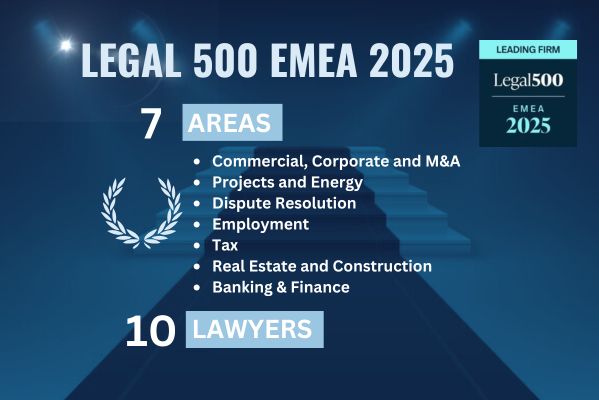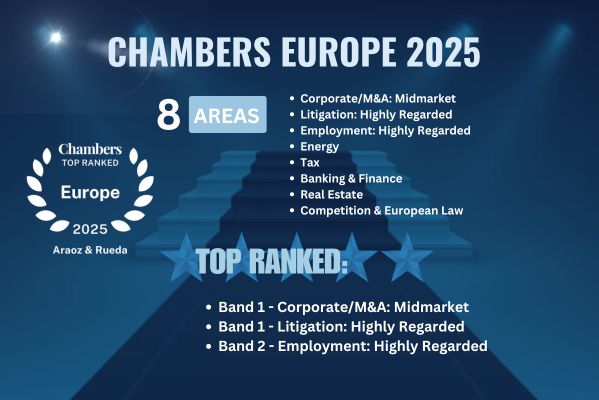The Spanish Law 9/2017 on Public Sector Procurement (“LPSP”) regulates the exclusion of operators from public tendering procedures (article 71 et seq). The LPSP transposes Directive 2014/24/ EU, which sets out on article 57 a number of mandatory and discretionary grounds for excluding an economic operator from public procurement procedures. The Directive considered anticompetitive conduct as a discretionary ground (1).
However, the Spanish legislator decided to establish a system where the exclusion of economic operators based on previous infringement decision of competition law is mandatory (article 71.1 LPSP). Furthermore, under the LPSP the exclusion from public tendering procedures requires the previous decision of the Spanish Competition Authority (the Spanish National Competition Authority “CNMC” or other regional Competition Authorities) to be final.
The Spanish system differs from the exclusion systems implemented in other EU Member States where the exclusion of undertakings from public tender procedures for anticompetitive conduct is a discretionary ground and can be based in sufficiently plausible indications (no final competition authority decision is required). For example, in France, under the French “Code de la Commande Publique” (2) , contracting authorities can exclude undertakings from a public tender procedure if they seriously suspect that the excluded undertaking is engaged in an anticompetitive conduct. This also occurs under the German exclusion system (3).
The Spanish domestic rules established by the LPSP have raised doubts. In particular, these doubts are related to the effectiveness of the mandatory exclusion. It must be noted that the LPSP requires the Competition Authority decision to be final, but it does not specify if it refers to a final decision from an administrative perspective or from a judicial perspective (4). Additionally, the LPSP distinguishes between two scenarios.
The first one, where the Competition Authority establishes directly in its sanctioning decision the scope and duration of the exclusion, and the second one where it does not. In case the decision of the Competition Authority does not establish the scope and duration of the exclusion, a further administrative procedure needs to be completed (article 72.3 LPSP). The Administrative body in charge of establishing the scope and duration of the mandatory exclusion is the Ministry of Finance. It is in the second scenario where doubts arise (5).
There are two main views regarding the effectiveness of the exclusion. One side, which considers that the exclusion has a direct effect despite the future procedure specifying its scope and duration and another side, which considers that the exclusion is incomplete and cannot generate effects until the administrative procedure has finished. In this context, the CNMC adopted the first sanctioning decision imposing a mandatory exclusion (6), without establishing its scope and duration.
This sanctioning decision was appealed before the Spanish High Court. Meanwhile, two of the appellants considered that the exclusion was immediately effective from the date of CNMC’s decision and, therefore, requested for interim measures demanding the suspension of the exclusion.
The Spanish High Court in his judgment (“Auto”) of 19 July 20197 accepted the appellants’ arguments and recognised that the measure could immediately restrict the affected undertakings ability to participate in public tenders. Therefore, the Court admitted that a final administrative decision containing a mandatory exclusion is directly executive.
The Court gave a special relevance to the fact that undertakings when presenting themselves to certain public tenders (where they have to submit the European Single Procurement Document) have to make a formal statement declaring if they are subject to exclusion grounds. Indeed, the Court considered that under article 72.5 LPSP undertakings could only circumvent the exclusion by paying the fine imposed by the CNMC, which will have to be paid long before the final judicial revision is adopted.
Thus, the Court concluded that:
- the fact that the duration and scope of the exclusion are deferred to a later procedure does not mean that the decision no longer establishes the mandatory exclusion;
- and that in the subsequent administrative procedure it is no longer possible to discuss the exclusion, which has already been pre-determined by the sanctioning decision.
As a result, the Court granted the interim measures and suspended the effectiveness of the mandatory exclusion considering that the effects of the exclusion would be very difficult, if not impossible to correct at a later stage (when the final judicial decision on the main appeal is adopted).
However, the conclusions embraced by the Spanish High Court have received several critics. First, it is argued that the adoption of the interim measures deprives the Ministry of Finance of exercising the competences conferred by Article 72.3 LPSP. Indeed, it is considered that if the High Courts’ conclusions were accepted, the distinction made by the LPSP between the two scenarios would be void of content.
Thus, all mandatory exclusions would be directly assessed by contracting bodies, regardless of the intervention of the Ministry of Finance. Moreover, it is also stressed that from the wording of article 72.7 LPSP, the time limit does not start running until the Ministry of Finance establishes the scope and duration of the exclusión.
Furthermore, several authors have pointed out that in application of the European Court of Justice Jurisprudence (8) the Spanish High Court has actually created a situation where any finally imposed mandatory exclusion is likely to last for much less, than the maximum three years established in the LPSP (article 72.6) (9).
Another controversial issue is the cross-border effect of the CNMC´s sanctioning decision. As described above, exclusion systems in other EU Member States are different and do not require a final decision of national competition authorities. Thus, the question arises whether the contracting authorities of other EU Member States could exclude from public tenders undertakings that have been sanctioned by the CNMC or Regional Competition Authorities but whose exclusion is suspended.
The sanctioning decision of the CNMC could be considered as a sufficiently plausible indication of anticompetitive conduct. As result, a possibility exist that sanctioned undertakings whose exclusion in Spain is suspended, are excluded from public tenders in other EU member states. Considering the aforementioned, it is clear that the LPSP does not provide a clear landscape. As set out above, there are different elements of the Law that seem to be in contradiction. We will have to wait and see if Spanish Supreme Court clarifies these legal uncertainties in the future.
- Article 57 of Directive 2014/24/EU establishes, that Contracting authorities may exclude or may be required by Member States to exclude from participation in a procurement procedure any economic operator where the contracting authority has sufficiently plausible indications to conclude that the economic operator has entered into agreements with other economic operators aimed at distorting competition.
- Code de la Commande Publique, article L2141 9.
- German Competition Act – GWB Section 124(1) no.
- Final means that the decision is no longer appealable.
- There is a recent decision of the Catalonian Competition Authority imposing an exclusion from public tender procedures establishing for the first time the scope and duration of the exclusion. Decision 94/2018, Licitaciones Servicio Meteorológico de Cataluña.
- Decision of the Spanish Competition Authority of 14 March 2019 on case S/DC/0598/2016 Electrificación y Electromecánicas Ferroviarias.
- Judgment of the Spanish High Court of 19 July 2019, number 284/2019.
- Judgment of the European Court of Justice of 24 October 2018 in case C-124/17 in VosslohLaeis (EU:C:2018:855).
- A. Sanchez- Graells (20 September 2019),”Litigation in Spanish railroad electrification cartel highlights further inadequacies of regulation of bid rigger exclusion”, How to crack a nut [Blog], Accesible https://www.howtocrackanut.com/blog/tag/leniency.
[Article originally published in Corporate Live Wire]
Pedro Láinez
Associate





